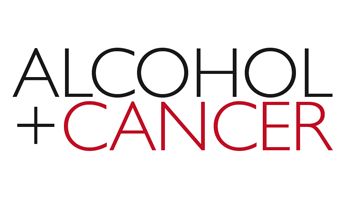Alcohol + Cancer
So much of the information reported about the relationships of cancer to alcohol consumption is conflicted and confusing that the comprehensive 2OO-page meta-review from the Australian Cancer Institute in New South Wales (www.cancerinstitute.org.au/cancer_inst/publications/pdfs/pm-2OO8-O3_alcohol-as-a-cause-of-cancer.pdf) is most welcome. We must keep in mind that cancer is not one disease, but many, and that its risk factors are very complex and variable.
It is clear that the risks of some cancers are raised by excessive drinking, and we all know that heavy drinking increases disability, destruction and death from many causes. What has been hard to fathom is the precise relationship between some causes and moderate drinking. And are there even cancers whose risk is diminished by moderate drinking?
We are pointed toward some of the answers by the Australian report, which is summarized in the July issued of aim digest. I will append comments based on my own experience as a hematologist-oncologist and my readings of the relevant medical literature.
Alcohol has been cited as a carcinogen by the International Agency for Research on Cancer. From a practical view, I would agree when the alcohol intake is chronically excessive. A strong point made by the Australian report is that as many as 35 percent of cancers are preventable by the avoidance of risky behavior. Avoidance of tobacco is number one on this list. Excessive sun exposure is on the list, as is chronic heavy drinking. Dietary factors, obesity and physical indolence have been indicted, but I don’t think there’s enough evidence for conviction.
The Australian survey finds that moderate drinking, average of two drinks per day, does not increase the overall risk of cancer. Four per day, however, and especially eight drinks per day raise the risk substantially. Although coronary risk may fall, medical risks in addition to cancer, perhaps most notably for cirrhosis of the liver, rise steeply at sustained higher levels of consumption.
Aerodigestive cancers (mouth, throat, larynx, esophagus) become more frequent as alcohol intake rises above moderate levels, the liability multiplied by smoking. Even moderately heavy drinking may lead to cancer arising in the liver, almost always with some degree of cirrhosis as a way station. Indeed, any sort of chronic lever disease, alcohol-related or not, may eventuate in liver cancer (hepatoma).
Whether breast-cancer risk rises with moderate drinking has been the single most difficult question of the alcohol-cancer controversy. The Australian survey, like many but by no means all of the scores of reports in the literature, notes a gradual rise in risk with rise in consumption. It does acknowledge the protective effect of the vitamin folic acid. I should recognize the recently reported data from southern France suggesting a threshold of consumption of about 1.5 drinks per day, below which women experience a 4O percent decrease in risk compared to nondrinkers, and above which, at moderate levels, risk does not increase significantly. A balanced perspective would keep in mind that, fearsome as breast cancer is, heart disease kills vastly more women. The cardiovascular benefits of moderate drink, therefore, are not to be dismissed.
The other puzzling, even murky, alcohol-cancer association concerns another group of very common cancers, those of the large intestine (colon) and rectum. The Australian survey finds a peculiar dichotomy: no alcohol-related risk among women, but a very substantial increase in men with higher intakes. There have been many studies that would cast doubt on these results. I must conclude about colorectal cancer what applies to most cancers in their possible relationship to drinking: more study is necessary.
No other direct associations were found by the Australians. A long list of cancers are not related to any level of drinking, but evidence appeared suggesting that alcohol consumption might be associated with reduced risk of thyroid cancer and of non-Hodgkin’s lymphoma. A number of studies over recent years have found that moderate drinking reduces the risks of cancers of various organs, including kidney and prostate. One of the most intriguing demonstrated that resveratrol triggers a death pathway among the cells of human leukemia and breast cancer, yet is harmless to normal cells.
This survey does not address differential effects of different beverages. Some others have suggested relative innocence of, even protection by, wine, compared to beer and spirits. Nothing here would tend to belie the wisdom of avoiding excess.

